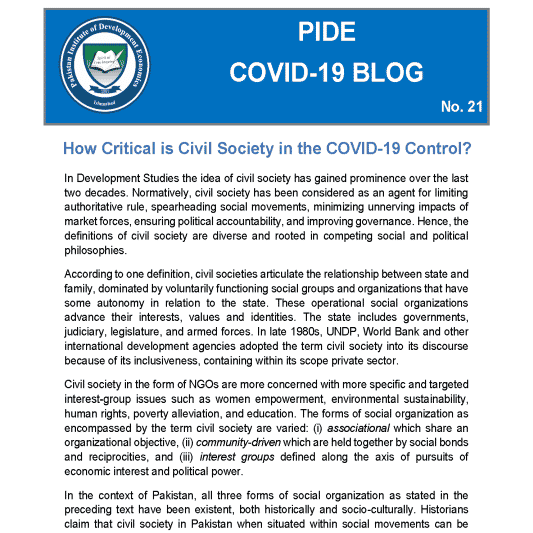How Critical is Civil Society in the COVID-19 Control? (COVID-19 Blog)
In Development Studies the idea of civil society has gained prominence over the last two decades. Normatively, civil society has been considered as an agent for limiting authoritative rule, spearheading social movements, minimizing unnerving impacts of market forces, ensuring political accountability, and improving governance. Hence, the definitions of civil society are diverse and rooted in competing social and political philosophies. According to one definition, civil societies articulate the relationship between state and family, dominated by voluntarily functioning social groups and organizations that have some autonomy in relation to the state. These operational social organizations advance their interests, values and identities. The state includes governments, judiciary, legislature, and armed forces. In late 1980s, UNDP, World Bank and other international development agencies adopted the term civil society into its discourse because of its inclusiveness, containing within its scope private sector.




